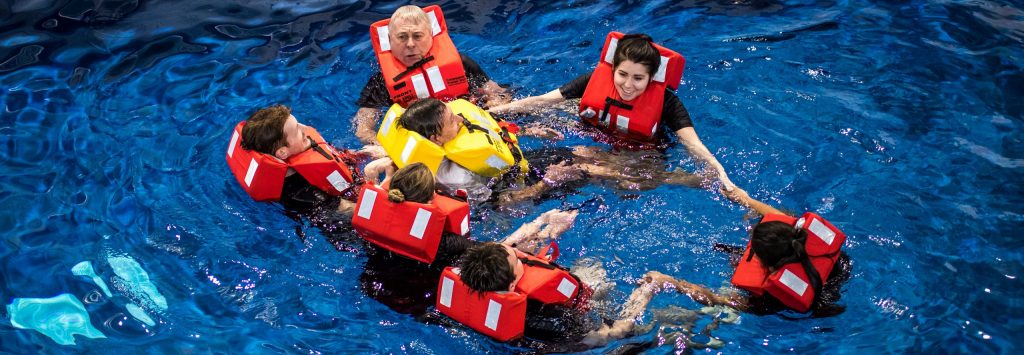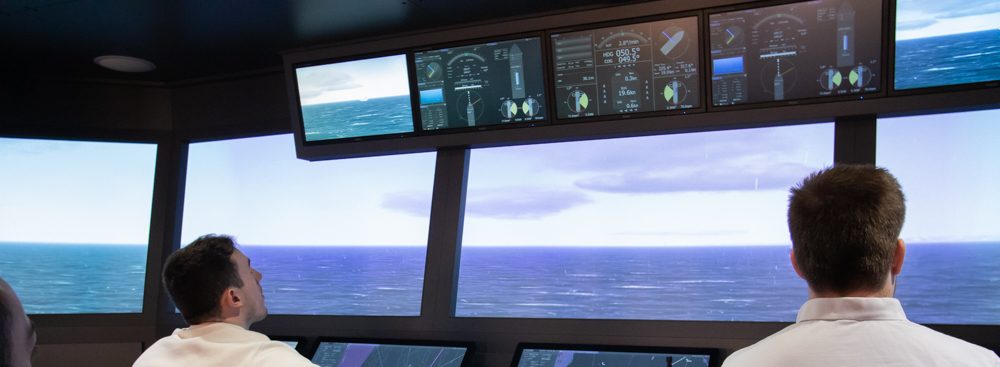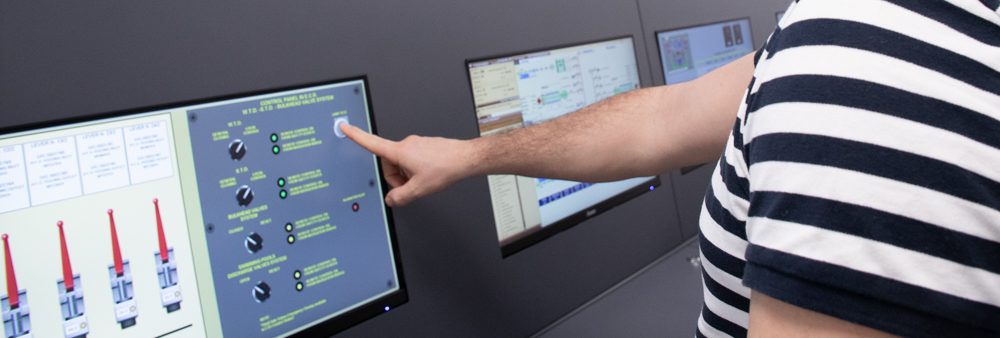To start a career on board, all seafarers must complete their STCW Basic Safety Training. This five-day training course includes Fire Prevention & Fire Fighting, PSSR & Security Awareness, Personal Survival Techniques and Elementary First Aid.
These courses are essential, not only because they are a legal requirement, but because they prepare crew for the unlikely event of an onboard emergency.

Basic Safety Training (BST) is so crucial in the maritime industry that even seasoned seafarers are required to refresh their certification every five years.
At the Maritime Skills Academy (MSA), we facilitate both first time BST and refresher training at our state-of-the-art facilities in Dover.
To advance in your career to a deck or engine officer position, seafarers will be required to qualify for a certificate of competency. This involves undergoing a medical assessment and accumulating six months of seagoing service.
Our bespoke simulator training facility centre in Portsmouth is the perfect place for deck and engine officers to train simultaneously. Helping them to develop teamworking and communication skills across departments, our Deck simulations are operated with the highest specification of technology and realistic capabilities.
Using Conventional or Podded Propulsion, our ship handling training courses are designed to prepare delegates for abnormal or emergency voyaging conditions. Simulating various situations, including poor weather conditions, close proximity to land, narrow channels, shallow water, and poor visibility, among others.

BRM training is designed to equip delegates with the skills they need to manage bridge operations during standard and emergency conditions. Practicing skills like teamwork, communication, situational awareness and decision making to ensure the safe completion of the vessel’s voyage.
Our bridge simulation assessments are designed to identify seafarer competency levels and evaluate whether they are suitable for deck roles. Similarly, the assessments are capable of identifying individuals with a standout approach and capability, making them ready for promotion.

Using our exclusive ECDIS training room, delegates will learn to operate the system under varying circumstances and conditions effectively. These skills will enable delegates to maintain a safe navigational watch, keep up to date with the latest technologies and safety procedures, as well as any internal system changes within the company they work for (which we can replicate in our simulator).
Understanding port operations, navigational challenges and safety protocols is essential for smooth global trade and international compliance to continue. Which is why Port studies is possibly the most essential training course for shipping companies, port authorities, and maritime students. Our simulator facilities are designed to replicate potential hazards and situations that will encourage delegates to put safety protocols to use. With the support of our expert training instructors, delegates will complete the course with a strong understanding of port activities and how to respond to an emergency.

Tug Simulator Training is the perfect way to train crew in a controlled environment. All types of tugboats are simulated in our Portsmouth centre, including conventional single-screw tugs, conventional twin-screw tugs, cycloid-drive (Voith-Schneider) tractor tugs and Z-drive reverse tractor drive. With 360-degree screens in one dedicated room, you can feel fully submersed in the training exercise.
Our vessel resource management course involves our unique capability to run the Bridge Simulator and Engine Room Simulator in conjunction with each other. This course encourages teamwork and communication between departments and trains teams to take on tasks as an entire vessel as opposed to individual departments.
Our expert trainers are available to travel to your vessel for bespoke onboard training! With previous vessels based in Canada, North America, and Europe, contact our booking team today to see how we can tailor our courses to meet your needs.
The Engine Room Resource Management courses are designed to prepare crew for navigating both standard and emergency conditions. Refining their decision-making, teamwork and communication skills by placing teams into simulated, real-world, scenarios.

Similarly to our bridge simulation assessments, our engine room simulation assessments are designed to identify seafarer competency levels evaluates whether they are suitable for engine roles or in a position to be promoted.
In our simulated high voltage scenarios, delegates can practice safety processes, reconfiguration, identifying faults, managing high voltage operations onboard a ship and understanding the maintenance of distribution capability. By offering the course at both operational and management levels, engineers can progress from one to the other as they continue to develop their careers.
Choosing the Maritime Skills Academy for your maritime training means investing in long-term learning, trainers that prioritise best practice, and the capability to merge courses.
Contact us today to see how we can create a full training solution to suit your needs.
Don’t forget to sign up to the Viking Crew website to receive 20% off!